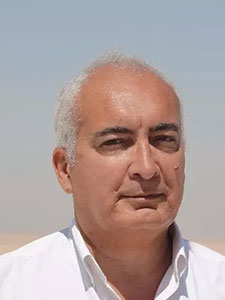
Dominique Guérillot
Prof. Dr Dominique Guérillot, former member of the Executive Committee of IFP and Program Director for the Upstream R&D of Saudi Aramco, he is focusing in Oil and Gas Exploration and Production including Unconventional, CO2 EOR and Carbon storage. After a PhD in Applied Mathematics, he joined IFP in 1982 in the Reservoir Engineering Dpt.
He started his career in the Exploration and Production sector developing Expert system for selecting EOR methods and Advanced Compositional Reservoir Simulators for EOR (CO2 and thermal methods).
In 1985, he began cooperating with geologists and he invented with the Paris School of Mines the first software package integrating reservoir characterization and flow simulations in porous media proposing innovative methods for upscaling absolute permeabilities.
After being the Director of the Geology and Geochemistry (95-01, in 2001, he became member of the Executive Committee of IFP and Managing Director of Exploration and Reservoir Engineering Centre with a total budget of 30 Millions of Euros. Consequently, IFP nominated him as board member of several Exploration and Production subsidiaries of IFP: Beicip-Franlab and RSI in France, IFP MEC in Bahrain, etc. He developed new strategic orientations for the business unit he was in charge modifying its business model to generate revenues based on royalties through the development of several strategic marketed software for IFP.
In 2009, he created a Young Innovative Company (YIC), Terra 3E, in Energy and Environment: http://www.Terra3E.com developing innovative plug-ins in Petrel software among which the first tool for accurate calculations of fluids in place for gas and oil shales and upscaling transmissivities. From 2010 to 2013, he was senior expert for Petrobras, Brazil.
In 2012, he served the European Commission for selecting R&D projects on CO2 Storage. In 2013, Qatar Petroleum called Dominique Guérillot for developing their R&D Centre at the Qatar Sciences and Technology park in Doha, Qatar. He is currently full professor at Texas A&M University in their campus of Qatar.
He published more than 50 full and refereed papers, holds 5 patents, is member of the IJOGCT editorial team, the SPE and EAGE associations, is referee of the Oil & Gas Science and Technology (OGST), and member of the editorial board of the Petroleum Geoscience journal of the Geological Society.
